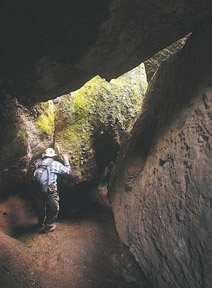
Every day that goes by with minimum economic progress and uncoordinated actions among local business interests highlights the critical need for an economic steering committee – comprised of leaders from the private sector – which works with local governments and potential developers to create prosperity.
The recent designation of Pinnacles as a national park – a potential economic boon if linked the right way with San Benito County – is an opportunity we cannot afford to miss.
Such opportunities are limited, and it is almost criminal to miss any of them because we continue to approach prospective economic development with a hodgepodge of organizations and people who operate without adequate resources, freedom of action or recognition as a go-to source in business-to-government relations.
It is well known that San Benito County has a plethora of organizations focused on business advocacy. There is the chamber of commerce, the Hollister Downtown Association, the business council and the economic development corporation, among others. They all have their respective place, but they all have their own interests to look out for as well. So despite the fact that the local business groups do occasionally work together and share similar goals and ambitions, they lack a structured, coordinated core – or committee – acting as a driving force for their collective efforts on matters with widespread impacts.
While we are without the presence of such a panel – which would have to carry autonomy as the authoritative source representing the private sector – this community also lacks the existence of an all-prominent advocacy organization that can serve as the final voice, the official stamp of approval, for business.
Local government and business leaders about five years ago attempted to designate the Economic Development Corp. of San Benito County as the primary source, the county’s face, for generating new business. Hollister and the county spiked their payments to the EDC so the organization could hire a Rolodex-savvy, proven professional as executive director. In the end, the model didn’t work and neither did the choice for director. Part of the reason is that the EDC has its own distinct membership and leadership – some members linked to local government circles – with particular interests and approaches to management.
There is a long list of talented and dedicated residents who are willing to serve in such capacities, but elected and appointed staff officials constantly jump into the fray on an ad hoc basis and undercut their efforts. That was the case with the EDC, which required board members from the city and county, as the two government entities donated large portions of the organization’s budget.
The problem is that as soon as a public official joins in, some matters cannot be discussed – such as business plans and confidential information – and the individual officials can’t make commitments for the government agency in any case. The key to progress is frank communication about the needs of the employers and developers, and the needs of the public entities involved.
Trust requires that a steering committee be brutally honest about strengths and weaknesses. They also must recommend ways for our organizations to improve ¬- and for the employers and developers to complete projects successfully within reasonable parameters. One cannot expect elected officials or directors to criticize their own agencies, so there is a lack of objectivity for key voices in the process.
One of the most important issues is providing the committee resources because our local agencies move slowly when it comes to specific fund requests. Pick people you trust and give them a budget so they can get things done. In the best case they will show the flag in a way that indicates we are serious about the program. They will get things done.
So, what are we waiting for?








